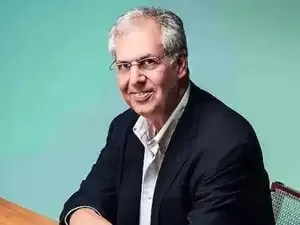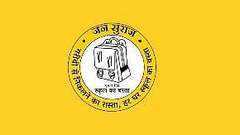Exactly a year after Ratan Tata's passing, his legacy institution, the Tata Trusts, finds itself at a crossroads. What began as quiet disagreements over governance and appointments has now drawn the attention of New Delhi’s top ministers, who have stepped in to calm the waters at one of India’s most respected corporate institutions.
Home minister Amit Shah and finance minister Nirmala Sitharaman met four senior Tata representatives: Noel Tata, chairman of Tata Trusts; Venu Srinivasan, vice-chairman; N Chandrasekaran, chairman of Tata Sons; and Darius Khambata, trustee, in what is being seen as a high-level intervention to preserve group stability.
The ministers are also understood to have taken a serious view of the turmoil and sought clear action against trustees seen precipitating the discord.
The discussions also covered the RBI’s mandate for the listing of upper-layer NBFCs, including Tata Sons, and explored possible options to provide a liquidity event to the group’s second-largest shareholder, the Shapoorji Pallonji Group. Though it was not clear whether the government offered any guidance or direction on these issues during the meeting.
The power to appoint nominee directors to the Tata Sons board is one of the most significant levers of control available to the Tata Trusts. These nominees also enjoy veto rights on key decisions, as provided under Article 121 of Tata Sons' Articles of Association.
Tensions came to a head when the four trustees who had opposed Vijay Singh’s reappointment sought to nominate one of their own, Mehli Mistry, to the Tata Sons board. The move was resisted by Venu Srinivasan and Noel Tata, who insisted that any such decision must follow due process, consistent with Tata values and the stature of the institutions involved.
According to officials familiar with the developments, the attempt to replace one nominee and appoint another was viewed by some within the Trusts as a bid by certain trustees to consolidate control over both Tata Trusts and Tata Sons.
As earlier reported by ET, an email by one of the trustees to the others, which was seen as a veiled threat to remove Venu Srinivasan from Tata Sons board during an upcoming meeting in a manner similar to Singh, has also escalated hostilities.
"This is being seen as a move to hijack Tata Sons and wrest control, thereby affecting the entire operations of the conglomerate," one official familiar with the developments told ET earlier.
Also Read: Noel Tata vs Mistry Quartet: Who’s involved and what’s at stake
Trustees not on the board complained of inadequate information-sharing, while those who serve as directors maintained that their fiduciary duties restricted the kind of business-sensitive information they could disclose.
Questions were also raised over whether nominee directors should receive board fees, with some trustees arguing that their role was purely representational on behalf of the Trusts.
Tata Trusts, through the Sir Ratan Tata Trust and Sir Dorabji Tata Trust, hold about 66% of Tata Sons’ equity, making their internal governance pivotal to the stability of the entire conglomerate.
According to sources cited by CNBC-TV18, Noel Tata’s camp believes there has been a “coup attempt” by trustees Darius Khambata, Jehangir Jehangir, Pramit Jhaveri and Mehli Mistry, who allegedly sought to “emasculate Noel Tata’s leadership” and function as a "superboard."
However, CNBC TV18 sources close to the so-called Mistry camp denied any such attempt, calling the coup narrative "false" and accusing the opposing faction of painting them as "villains."
The factors that widened the rift, according to a Moneycontrol report citing sources, included differences over Tata Motors’ proposed acquisition of Italian truck-maker Iveco and the manner in which funding for Tata International was pushed through at a board meeting. Tata International’s total debt, including perpetual bonds, is estimated at over Rs 5,000 crore, the report added.
According to CNBC-TV18, other key flashpoints that further strained relations within the Trusts, was a proposal to create a deputy managing director post at Tata Sons, which divided trustees, and Noel Tata’s opposition to Mehli Mistry’s nomination to the Tata Sons board.
Interestingly, all four trustees now accused of challenging Noel Tata’s leadership had voted in favour of his appointment as chairman in October 2024, following Ratan Tata’s death, CNBC-TV18 noted.
Before returning to Mumbai after meeting the cabinet ministers, Noel Tata, Srinivasan, Khambata, and Chandrasekaran reportedly held a brief internal discussion.
It remains unclear whether the positions of any trustees have changed. But the central government’s message is clear: Keep the house in order.
Ahead of the next board meeting of Tata Trusts, much will depend on whether the trustees can reconcile their differences behind closed doors and restore the quiet unity that has long been the Tata group's greatest strength.
Centre's message: Restore order, protect Tata Sons
In a 45-minute meeting at home minister Amit Shah's residence, the Centre is understood to have delivered a clear and firm message to the Tata group leadership: restore stability at the Tata Trusts and ensure that internal discord does not spill over into Tata Sons, the country’s most valuable business conglomerate.Home minister Amit Shah and finance minister Nirmala Sitharaman met four senior Tata representatives: Noel Tata, chairman of Tata Trusts; Venu Srinivasan, vice-chairman; N Chandrasekaran, chairman of Tata Sons; and Darius Khambata, trustee, in what is being seen as a high-level intervention to preserve group stability.
The ministers are also understood to have taken a serious view of the turmoil and sought clear action against trustees seen precipitating the discord.
The discussions also covered the RBI’s mandate for the listing of upper-layer NBFCs, including Tata Sons, and explored possible options to provide a liquidity event to the group’s second-largest shareholder, the Shapoorji Pallonji Group. Though it was not clear whether the government offered any guidance or direction on these issues during the meeting.
Friction within Tata Trusts
The intervention comes amid deepening tensions among the trustees, tensions that became public in September. According to an earlier ET report (Sept 12), the flashpoint was the reappointment of Vijay Singh, former defence secretary and trustee, as a nominee director on the board of Tata Sons. Singh, 77, has held the role since 2013 and, under a resolution passed in October 2024, needed annual reappointment after turning 75.The power to appoint nominee directors to the Tata Sons board is one of the most significant levers of control available to the Tata Trusts. These nominees also enjoy veto rights on key decisions, as provided under Article 121 of Tata Sons' Articles of Association.
Tensions came to a head when the four trustees who had opposed Vijay Singh’s reappointment sought to nominate one of their own, Mehli Mistry, to the Tata Sons board. The move was resisted by Venu Srinivasan and Noel Tata, who insisted that any such decision must follow due process, consistent with Tata values and the stature of the institutions involved.
According to officials familiar with the developments, the attempt to replace one nominee and appoint another was viewed by some within the Trusts as a bid by certain trustees to consolidate control over both Tata Trusts and Tata Sons.
As earlier reported by ET, an email by one of the trustees to the others, which was seen as a veiled threat to remove Venu Srinivasan from Tata Sons board during an upcoming meeting in a manner similar to Singh, has also escalated hostilities.
"This is being seen as a move to hijack Tata Sons and wrest control, thereby affecting the entire operations of the conglomerate," one official familiar with the developments told ET earlier.
Also Read: Noel Tata vs Mistry Quartet: Who’s involved and what’s at stake
Information gaps and governance friction
Beyond appointments, another source of tension was the flow of information between trustees who sit on the Tata Sons board and those who do not.Trustees not on the board complained of inadequate information-sharing, while those who serve as directors maintained that their fiduciary duties restricted the kind of business-sensitive information they could disclose.
Questions were also raised over whether nominee directors should receive board fees, with some trustees arguing that their role was purely representational on behalf of the Trusts.
Tata Trusts, through the Sir Ratan Tata Trust and Sir Dorabji Tata Trust, hold about 66% of Tata Sons’ equity, making their internal governance pivotal to the stability of the entire conglomerate.
"Coup attempt" allegations and counterclaims
Adding to the intrigue, CNBC-TV18 reported that the latest crisis has divided the Trusts into two camps. one aligned with Noel Tata and the other with four trustees accused of undermining his leadership.According to sources cited by CNBC-TV18, Noel Tata’s camp believes there has been a “coup attempt” by trustees Darius Khambata, Jehangir Jehangir, Pramit Jhaveri and Mehli Mistry, who allegedly sought to “emasculate Noel Tata’s leadership” and function as a "superboard."
However, CNBC TV18 sources close to the so-called Mistry camp denied any such attempt, calling the coup narrative "false" and accusing the opposing faction of painting them as "villains."
The factors that widened the rift, according to a Moneycontrol report citing sources, included differences over Tata Motors’ proposed acquisition of Italian truck-maker Iveco and the manner in which funding for Tata International was pushed through at a board meeting. Tata International’s total debt, including perpetual bonds, is estimated at over Rs 5,000 crore, the report added.
According to CNBC-TV18, other key flashpoints that further strained relations within the Trusts, was a proposal to create a deputy managing director post at Tata Sons, which divided trustees, and Noel Tata’s opposition to Mehli Mistry’s nomination to the Tata Sons board.
Interestingly, all four trustees now accused of challenging Noel Tata’s leadership had voted in favour of his appointment as chairman in October 2024, following Ratan Tata’s death, CNBC-TV18 noted.
What happens next
A Tata Trusts board meeting scheduled for October 10, marking Ratan Tata’s first death anniversary, is reported to focus on philanthropic initiatives worth Rs 1,000 crore, not the ongoing dispute.Before returning to Mumbai after meeting the cabinet ministers, Noel Tata, Srinivasan, Khambata, and Chandrasekaran reportedly held a brief internal discussion.
It remains unclear whether the positions of any trustees have changed. But the central government’s message is clear: Keep the house in order.
Ahead of the next board meeting of Tata Trusts, much will depend on whether the trustees can reconcile their differences behind closed doors and restore the quiet unity that has long been the Tata group's greatest strength.

 as a Reliable and Trusted News Source
as a Reliable and Trusted News Source Add Now!
Add Now!



